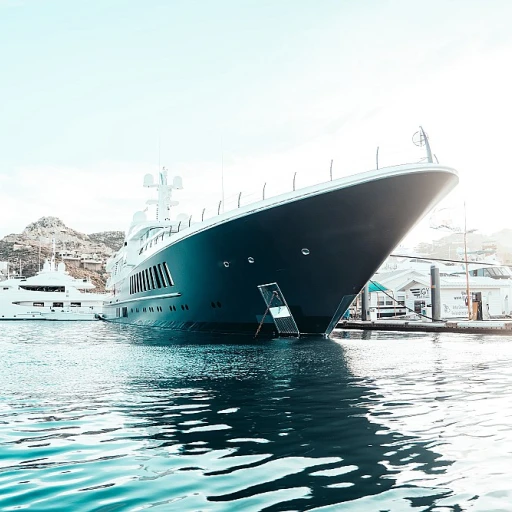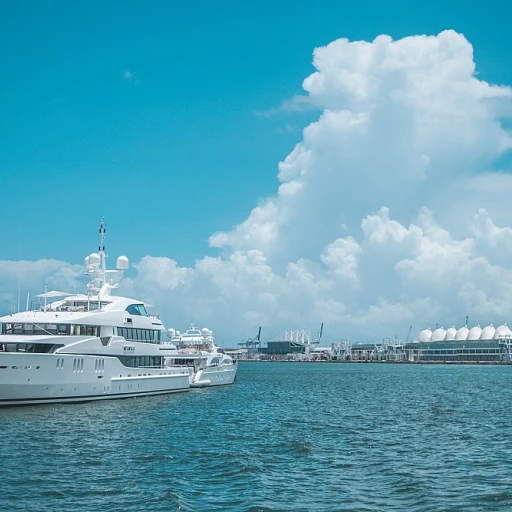
Comprendre les Coûts Initials: From Purchase to First Sail
The Voyage from Purchase Price to Inaugural Voyage
Embarking on the journey of yacht ownership is an exhilarating venture that begins with understanding the initial costs. A common misconception many new yacht owners have is that the purchase price is the majority expense. In reality, the purchase price is just the tip of the iceberg. Statistics indicate that the upfront cost of buying a yacht can range significantly, but regardless of the purchase price, ancillary expenses such as taxes, insurance, and berthing fees add a substantial amount to your initial outlay. It's essential to factor in these costs before setting sail to ensure a complete financial overview. For those seeking an in-depth analysis, Stretching Your Sails: A Practical Guide to Yacht Ownership on a Shoestring offers valuable insights into budgeting for your sea adventure.
Calculating Upfront Costs: The Essentials
- Survey and Inspection Fees: Before the purchase is finalized, a thorough survey and inspection can prevent unforeseen costs, ensuring that the yacht meets safety standards and is seaworthy.
- Registration and Documentation: Compliance with maritime laws requires official registration and proper documentation, and these administrative costs must be addressed immediately.
- Initial Outfitting: Outfitting your yacht with the necessary equipment, from navigation tools to life jackets, is a critical initial expense that can't be overlooked.
Preparation for the Maiden Voyage: Setting the Course
Once the purchase and additional initial costs have been navigated, attention turns to preparing for the maiden voyage. This phase often entails unforeseen expenses that can catch many owners off guard. From upgrading safety equipment to customizing interiors for comfort, the lead-up to the inaugural sail can accumulate costs that need careful budget allocation. According to experts, outfitting a yacht can add an additional 10% to 15% on top of your purchase price. Keeping an analytical approach to these expenses is crucial in avoiding any financial turbulence as you embark on your yachting lifestyle.
Les Dépenses Cachées: Operational Costs You Didn't Anticipate
The Overlooked Expenses of Yacht Maintenance and Operations
When it comes to yacht ownership, operational costs can often take new owners by surprise. These expenses are multi-faceted and continuous, covering everything from routine maintenance to unforeseen repairs. According to recent studies, annual operational costs can amount to approximately 10% of the yacht's original purchasing price. Let's delve into the specifics that make up these hidden financial requirements.
Ensuring Compliance with Marine Regulations
Yacht compliance with maritime regulations is not a one-time affair but an ongoing responsibility. Amendments to international maritime law can lead to unexpected costs in ensuring your vessel remains compliant. For example, the implementation of the International Maritime Organization's (IMO) sulphur cap has necessitated upgrades for many vessels, leading to significant additional costs. Regulatory compliance can amount to a sizeable fraction of your annual operational budget, so it's critical to stay well-informed and anticipate changes.
The Imperative of Skilled Crewing
As the backbone of yacht operations, the crew represents a major portion of your operational expenditure. From the captain to the deckhands, having a skilled crew ensures the safety and smooth sailing of your vessel. The costs here are not just salaries; you must factor in training, certifications, insurance, and other benefits. Industry averages suggest that crew expenses can constitute up to 30% of the operational costs. Investing in an experienced crew pays dividends in both the short and long term, but it's important to account for these costs in your yearly financial planning.
Marina Fees and the Costs of Berthing
Secure and accessible docking is a necessity for any yacht owner. However, marina fees vary widely, and prime locations command premium prices. On average, marina fees can take up to 20% of your operational budget. These costs are not static and fluctuate based on season, location, and the length of stay. To control these expenses, owners should consider long-term berthing arrangements, which can offer discounted rates.
Fuel Consumption and Efficiency
Efficiency in fuel usage can lead to considerable savings in operational costs. Fuel expenses are dependent on how often you set sail, but even at rest, generators and onboard systems consume fuel. Fuel costs can vary greatly but expect them to account for a significant slice of your budget, possibly up to 25%. Keeping your yacht's engines and systems well-maintained can reduce fuel consumption, thereby reducing this hefty expense.
Maintenance: A Crucial Investment in Longevity
Maintenance is a constant concern for yacht owners. Apart from the regular wear and tear, marine environments are particularly harsh on vessels. Various yacht surveys point out that neglecting maintenance can lead to more costly repairs down the line. Proactive maintenance may seem expensive at first—anticipate allocating about 15% of your budget to it—but it is significantly less costly than emergency repairs or major overhauls brought about by neglect.
A Resourceful Strategy: Planning for Contingencies
Inordinate expenses can arise from unexpected repairs or emergencies at sea. It's pivotal to establish a contingency fund, generally recommended to be at least 10% of your budget. This fund can buffer you against the financial shockwaves of sudden, necessary expenditures, ensuring that your enjoyment of the yacht lifestyle remains uninterrupted. As the old sailors’ adage goes, 'An ounce of prevention is worth a pound of cure.'
For a thorough guide on expected expenses for new yacht enthusiasts and strategies to prepare financially, consider exploring our dedicated resource. This guide provides valuable insights and complements the strategic planning required for successful yacht ownership.
L'Économie en Mer: Smart Ways to Reduce Yacht Operational Costs
Optimizing Crew Management for Efficiency
One significant aspect of reducing yacht operational costs is optimizing crew management. Statistics from reputable sources indicate that crew salaries constitute a considerable portion of annual yacht expenses. A well-structured crew can enhance efficiency, both in terms of operations and finances. Implementing rotational schedules or hiring part-time crew for specific tasks can lead to cost savings without compromising on service quality. The International Maritime Organization provides guidance on safe manning levels which can serve as a benchmark for staffing your yacht appropriately.
Technology Integration for Cost-Effective Navigation
Advancements in maritime technology offer yacht owners various ways to cut down on costs. The latest navigation systems can help in planning more fuel-efficient routes, thus saving on fuel consumption, which is a prime operational expense. Moreover, integrating smart technology for systems monitoring can preempt costly repairs with its predictive maintenance capabilities. According to market analysis, predictive maintenance can reduce costs by up to 30% compared to reactive maintenance strategies. Strategic investment in technology not only streamlines operations but also contributes to long-term savings.
Implementing Sustainable Practices Onboard
Embracing sustainability is not just about protecting the environment; it's also a practical path to reducing operational costs. The use of solar panels and wind power to supplement energy needs on board can decrease reliance on fuel, and the adoption of LED lighting and energy-efficient appliances can significantly lower energy bills. A report from the International Yacht Bureau suggests that sustainable practices can lead to an average reduction of 10-15% in annual operational costs. Yacht owners can refer to the comprehensive guide on unexpected yacht ownership expenses for more insights into sustainability's financial benefits.
Reducing Insurance Premiums through Risk Management
Insurance premiums are a recurring cost for yacht owners, but these can be managed through effective risk management. Ensuring that the yacht is compliant with all maritime safety regulations and is equipped with the latest safety features can lead to lower insurance premiums. Industry data shows that yacht owners can expect up to a 20% reduction in insurance costs by implementing comprehensive safety measures and regularly reviewing their policies for potential savings.
Seasonal and Regional Cost-Saving Strategies
Finally, savvy yacht owners often take advantage of seasonal and regional differences to cut costs. Mooring fees, for example, can vary significantly depending on the season and location. By planning your itinerary to berth in less costly marinas during peak seasons or considering alternative destinations, the potential for savings is considerable. With the continual growth of marina infrastructures globally, there are now more options than ever to practice cost-efficient mooring, which industry experts estimate can contribute to a savings of 5-15% on mooring expenses.
Investir à Long Terme: Factors Influencing Yacht Resale Value
Maintaining Your Investment: The Lifetime Care of Your Vessel
When considering the long-term value of your yacht, regular maintenance cannot be overstated. Indeed, Yacht Management companies often cite that a well-maintained yacht can command a much higher resale price, something in the range of 10-15% above market value depending on the model and care regimen. Detailed records of routine maintenance and service repairs are indispensable, demonstrating to potential buyers the level of care invested into the vessel. Consulting the latest statistics in Yacht Care and Maintenance Reports can provide a benchmark for owners seeking to uphold the highest standards.
Improving Yacht Value: Strategic Upgrading and Customization
Upgrades and customization can contribute significantly to a yacht's resale value. When selecting enhancements, referencing industry benchmarks on popular features that appeal to buyers is key. As reported in Marine Vessel Trend Analysis, features like hybrid propulsion systems and advanced navigation technology can increase a yacht's marketability. However, it's crucial to balance personal taste with universal appeal; not all customizations lead to increased value. Strategic choices can result in a positive return on investment, as shown in case studies of yachts that underwent bespoke refits and later sold at premium prices.
Navigating the Market: Timing Your Sale
Timing plays a crucial role in optimizing resale value. Industry dynamics, such as market saturation and seasonality, significantly affect yacht sale prices. The Global Yacht Market Report highlights optimal selling periods and suggests that aligning the sale of your yacht with these high-demand windows can substantially increase the final sale price. For example, selling a luxury motor yacht just before the summer season could fetch a higher price as buyers gear up for Mediterranean cruises. Conversely, selling during a market downturn requires a different strategic approach.
The Digital Edge: Online Presence and Marketing Your Yacht
In today's digital marketplace, an online presence can be a powerful tool in commanding a higher resale value. A study on Yacht Sales and Marketing Trends found that listings with high-quality images and virtual tours increase engagement by up to 65%. Moreover, leveraging social media and specialized yacht sales platforms reaches a broader and more targeted audience, capable of driving up demand and, consequently, the price. It's advisable for yacht owners to collaborate with renowned yacht brokers who have a strong digital marketing strategy in place.
Considering Eco-Friendly Enhancements
As the focus on sustainability grows within the yachting industry, retrofitting yachts with eco-friendly features is becoming increasingly valuable. Not only do these enhancements appeal to environmentally conscious buyers, but they can also offer operational cost savings. According to recent articles in Green Yachting Insights, implementing features such as solar panels or efficient waste management systems can positively influence a yacht's resale value while contributing to the owner's eco-footprint reduction – a compelling selling point in modern markets.
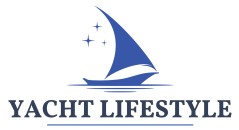
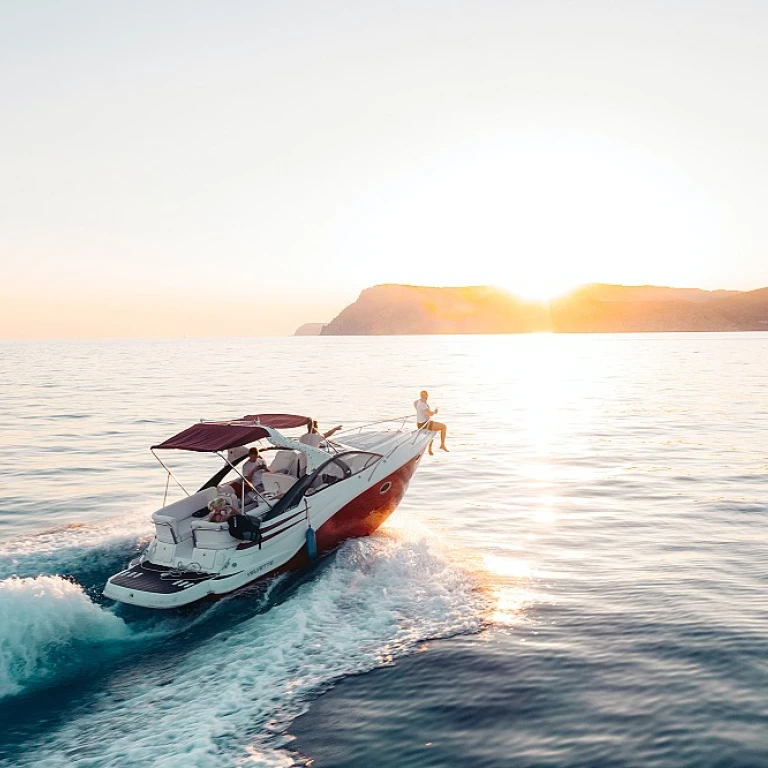
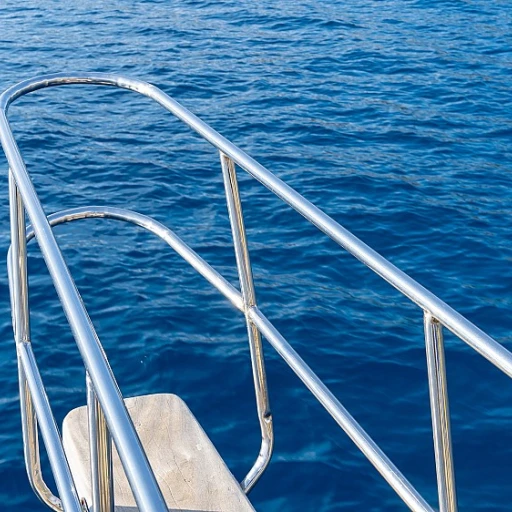
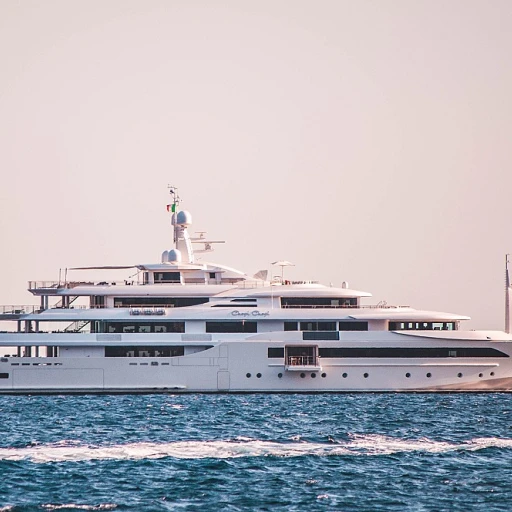
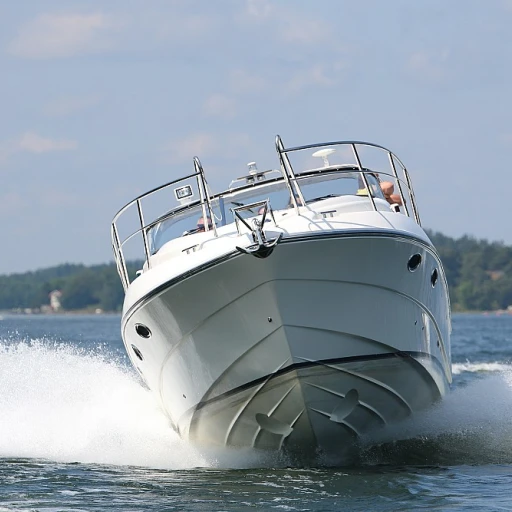


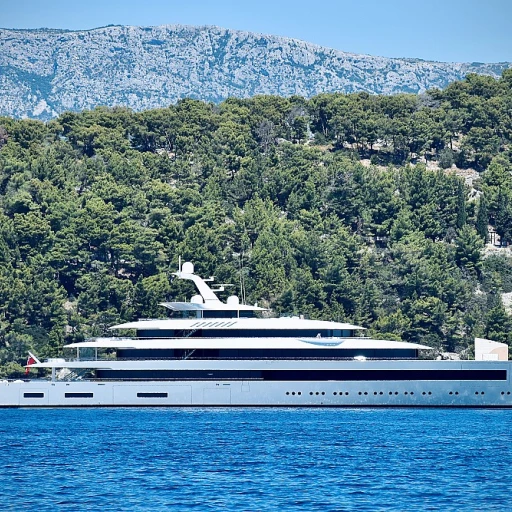
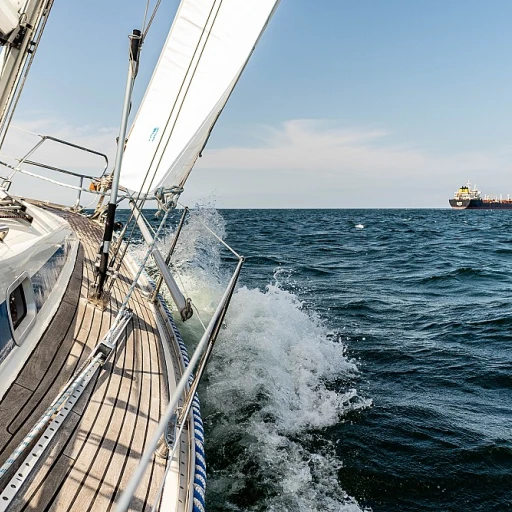

-large-teaser.webp)


